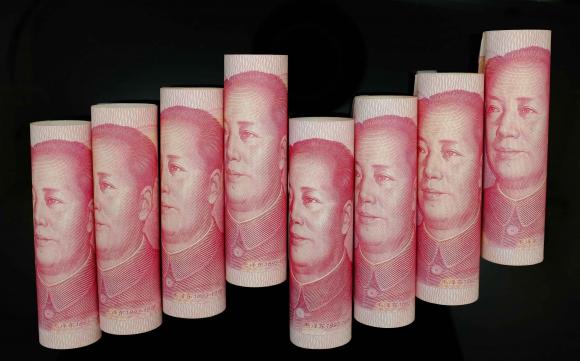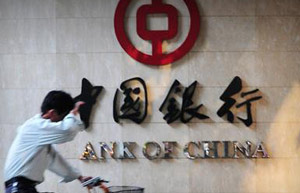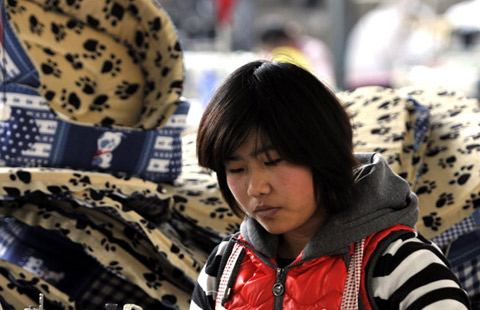Surge in govt savings to weigh on growth
By Li Xiang (China Daily) Updated: 2014-11-06 07:41
|
 |
|
100 Yuan notes are seen in this illustration picture in Beijing Nov 5, 2013. [Photo/Agencies] |
Rate of expansion higher than the increase in GDP, says top economist
The high level of government savings deposits could prove detrimental to long-term economic growth, even as concerns mount over ballooning local government debt in China, a report said on Wednesday.
Total bank deposits held by government agencies and public institutions reached 18.3 trillion yuan ($2.99 trillion) by the end of September and accounted for 30 percent of total GDP, Liang Hong, chief economist of the investment bank at China International Capital Corp Ltd, wrote in the report.
Moreover, the huge amount of government savings is expanding at a rate of 20 percent annually, much higher than the growth of the country's GDP and the money supply, which grows by about 13 percent annually, according to the report.
The swelling bank deposits held by government bodies excluding State-owned enterprises have exposed problems in Beijing's wealth management strategies as the central and local governments have kept raising money at the cost of more than 6 percent while putting it back in banks as savings with interest rates of less than 3 percent, the report said.
"The negative interest rate is obviously inefficient and unsustainable," Liang said.
The government held 4.1 trillion yuan of cash in the central bank at the end of September, up from 2.4 trillion yuan at the end of 2012.
The amount accounts for 6.9 percent of China's GDP and 27 percent of this year's public expenditure. In comparison, the US Treasury Department holds about $118 billion in cash at the Federal Reserve, accounting for 3.4 percent of its public expenditure, according to the report.
Liang attributed the rise in government savings to commercial profits earned by public institutions and fees from public services.
But some economists questioned the figures in CICC's report, claiming that it failed to explain the government's mounting debts while it continues to accumulate deposits in banks.
"If the numbers are correct, the level of Chinese government's savings is too high and it is beyond my understanding," said Xu Hongcai, director of the information department at the China Center for International Economic Exchanges.
"The numbers seem confusing because if the government has so much cash on hand, then why does it continue to borrow money?" Xu said.
In its report, CICC suggested that the Chinese government should use its savings to improve its balance sheet by paying off some debts. The government should also reallocate the wealth to consumers and enterprises so as to increase the efficiency of the economy.
"Such moves could substantially reduce the leverage of the Chinese economy and avoid an overly tightened monetary policy, which runs the risk of dragging down growth," Liang said in the report.
Experts said the positive side is that such huge government savings have offered Beijing more leverage to address the side effects of its structural reforms and previous stimulus policies.
China has felt the growing burden of its high savings rate, which is nearly 50 percent of its GDP, as it is transforming the growth model to a consumption-led one.
Some experts said that the government should broaden the domestic investment options so that it can channel the high government, enterprise and household savings back to the markets.
Meanwhile, improving equity financing markets is also necessary to reduce the economy's dependence on the banking system, they said.
 |
 |
| China to issue 40b yuan in e-savings bonds next week | China's bank card issuance at 4.39b |
- BMO Global Asset launches three ETFs in Hong Kong
- Consumers unwilling to pay more for quality food
- China to speed up construction of Silk Road
- Loaded Alibaba and Jack Ma to continue investment
- Services sector potential engine of Asia-Pacific growth
- China stock index futures close higher on Nov 6
- World's longest aircraft to fly Sino-US routes next year
- Toyota says Oct China auto sales up 27.1% YOY
















